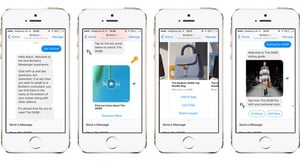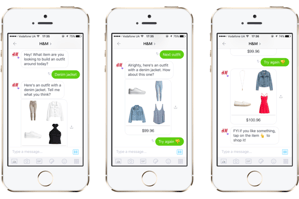The weekend from 2017 Black Friday through Cyber Monday saw roughly 174 million American shoppers, many of whom were Baby Boomers, Generation X and Millennial consumers.
However, the newest generation known as Generation Z, or those born after 1995, is expected to increase its holiday spending by 46 percent – 7 percent more than all of the other generational cohorts.
It is not surprising that the retail industry intensely studies consumer behavior patterns per demographic to reach sales goals and gain insight during the holiday season. Retailers interested in capitalizing on the increased purchasing capabilities of Generation Z should know:
- According to the National Retail Foundation (NRF), Gen Z-ers influence household spending, even though they may not be the ones doing the actual spending.
- Members of Gen Z are more likely to impulse buy compared to other generations. They are also more likely to purchase items with the intent to return them later.
- The Gen Z cohort is perhaps even more tech-savvy than Millennials, as they often use technology for research, discovery and communication.
Some retailers have tried to attract Gen Z consumers by making significant investments in technology, whether it be online marketplaces, digital coupons or the newest marketing technology craze—chatbots.
Chatbots are a marketing automation, data aggregator and customer service tool that exists online. Equipped with frequently asked consumer questions and corresponding responses, retailers can program chatbots to interact with an online community based on these messages. Consumers benefit from chatbots because they can access relevant information quickly, avoid call centers and interact with a brand representative. Retailers benefit from chatbots because they can use them to engage with Gen Z, and other consumers, during different phases of the buying journey.
However, do chatbots really work for the Gen Z buyer?
Chatbots can aid online research
The prevalence of online search is transforming the sales process. Previously, consumers would conduct their product research at brick-and-mortar stores. Now, Gen Z consumers are more likely to head to the internet than to the store, using the web to read reviews, compare prices and locate the best places to purchase products. Additionally, Gen Z members are more likely to create online wish lists and registries to gather research in one easy, accessible place. Whether it be a t-shirt or a new laptop, they are turning to the internet to educate themselves pre-purchase and become more knowledgeable buyers.

In the above image, Burberry’s chatbot is aiding a user in her research process by providing her with the types of questions it can help answer.
With a chatbot like this, brands can analyze data found in a Gen Z customer’s shopping cart or question thread and provide relevant, personalized ads to capture their attention.
Chatbots provide tailored customer experiences
Providing customers with tailored experiences fosters brand loyalty. Since Gen Z is more likely to write a brand review after a positive experience than any other generation, retailers need to make a dedicated effort to provide personalized customer experiences. To do this, brands can use chatbots to build gift guides to aid consumers in their shopping journeys.

In the example above, H&M’s chatbot is providing added value to its user by suggesting compatible merchandise based on clothing she has already identified she’s interested in.
With chatbots, customers can experience a customized shopping experience like this, which will serve to be mutually beneficial to the brand. For example, a seamless and helpful process can encourage shoppers to leave positive online reviews and impact the perception of the brand to potential new customers.
Chatbots can foster brand relationships
A brand’s relationships with its customers is central to its success. As an example, Gen Z shoppers view Forever 21 as an affordable brand that is up-to-date on the latest fashion trends. Having this brand trust is crucial to consumers faced with a myriad of options. Chatbots can help brands converse with Gen Z shoppers to lay the foundation for this type of relationship.
By providing value to the consumer through a personalized experience, chatbots can help more shoppers move from the research to purchase phase. And by collecting information along the way, they can also provide tremendous value to the brand.
When Millennials became of age and started collecting credit cards, their tech-savviness created a gap in knowledge between them and retailers. Now, a new generation – Generation Z – has entered the marketplace and it’s causing retailers to adapt once again. Hopefully, with tools like chatbots, they will be more prepared for the challenge.
For more insight into the holiday shopping season, check out our Holiday Campaign Analysis.

Pictures: https://rubygarage.org/blog/why-retail-should-use-chatbots




